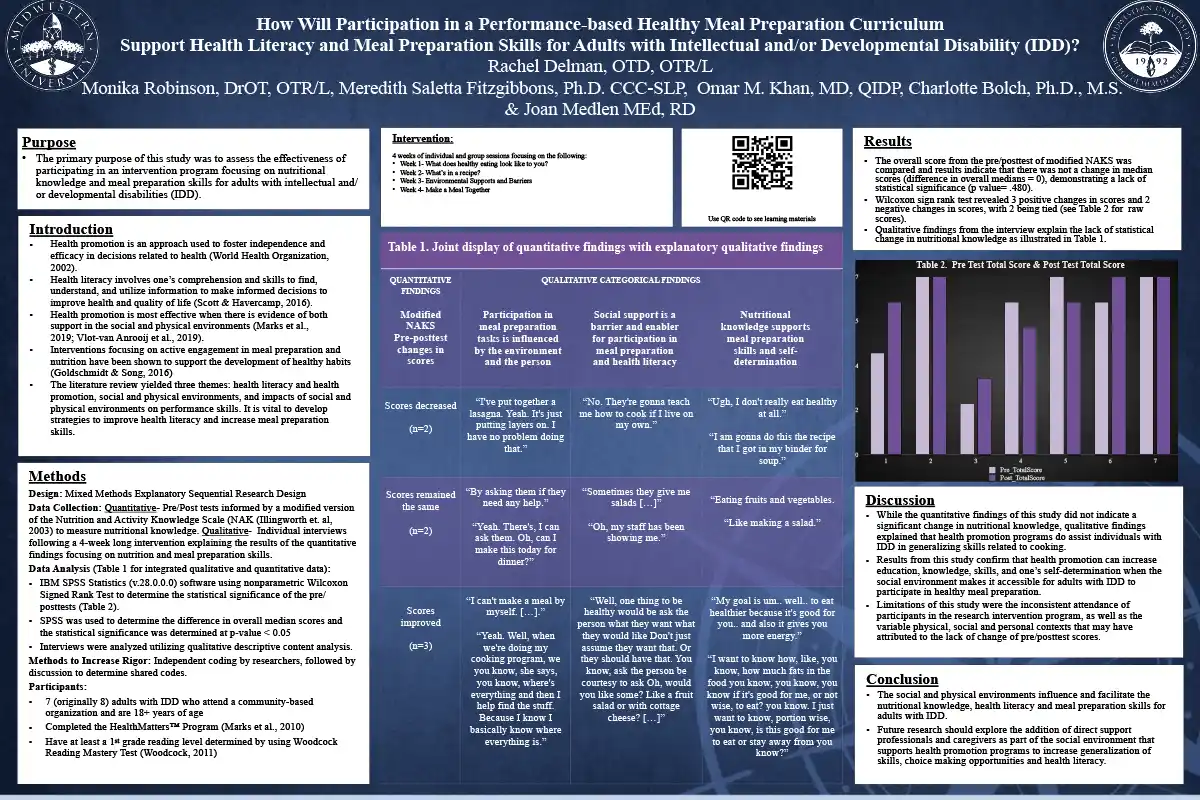HEALTH & WELLNESS
Health & Research
Health and nutrition education, physical activity, and research have been areas that The Douglas Center has put an emphasis on in the last several years through the services provided. We understand that having an intellectual and/or developmental disability (IDD) can present with its own challenges, and some of those may include physical and mental health difficulties.
Through the COVID pandemic, we have also learned that those with IDD may be at greater risk of impact on physical and mental wellbeing. At The Douglas Center, we hope to provide education and services that can help our participants improve their physical and mental health and overall quality of life and we also hope to expand the base of knowledge in the IDD field by collaborating with local universities in research.
Health:
- Health Matters Program (12-week program): The Exercise and Nutrition Health Education Curriculum for People with Developmental Disabilities
- Weekly walks in nearby gym’s indoor track
- Adopt-A-Park Program: We have adopted Lauth Park in Skokie, IL and participants go weekly to be outdoors and get physical activity while helping to clean up the park
- Pet Therapy: Participants volunteer weekly at a local cat shelter to care for homeless cats and enjoy their time giving back
- High Fives: An outdoor space at The Douglas Center is used regularly for physical and leisure activities
- The Talking Farm: Besides our Flowers From The Heart program in collaboration with The Talking Farm, our participants go to the farm and have activities at The Douglas Center in partnership with The Talking Farm to help participants grow herbs and vegetables and learn more about healthy foods
Research:
We have collaborated with local universities on a number of research projects and continue to do so. Below are a few examples of studies:
